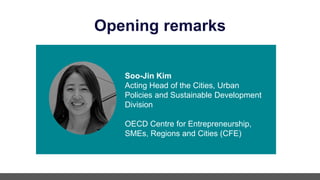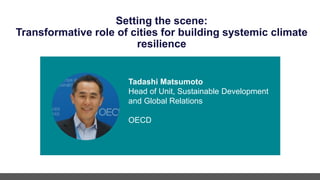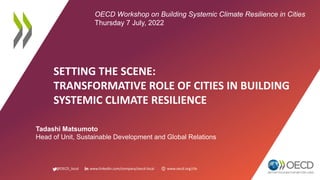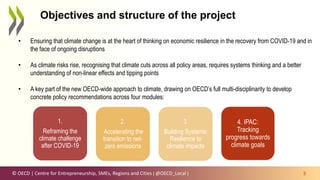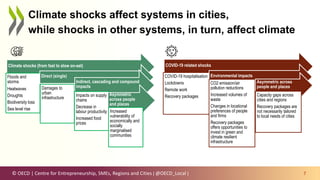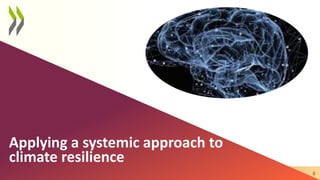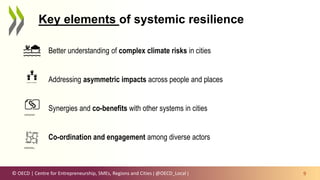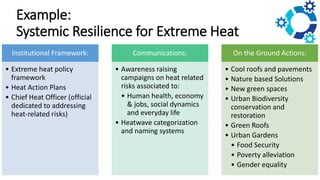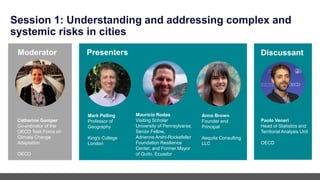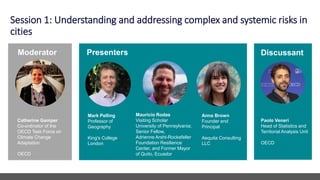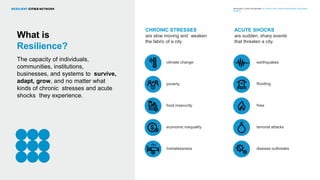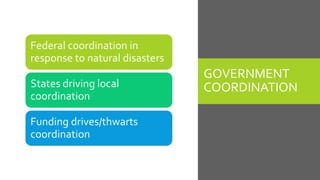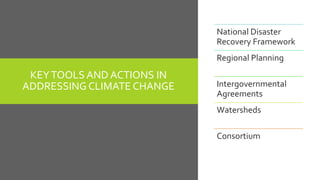The document discusses a workshop on building systemic climate resilience in cities, emphasizing the transformative role of urban areas in addressing climate change and related shocks. It outlines key objectives such as integrating climate considerations into recovery from COVID-19, promoting adaptation strategies, and understanding the complex interactions of climate impacts on urban systems, with a focus on vulnerable populations. The document also highlights the need for localizing national adaptation strategies and fostering multi-level collaboration to enhance resilience against climate risks.

